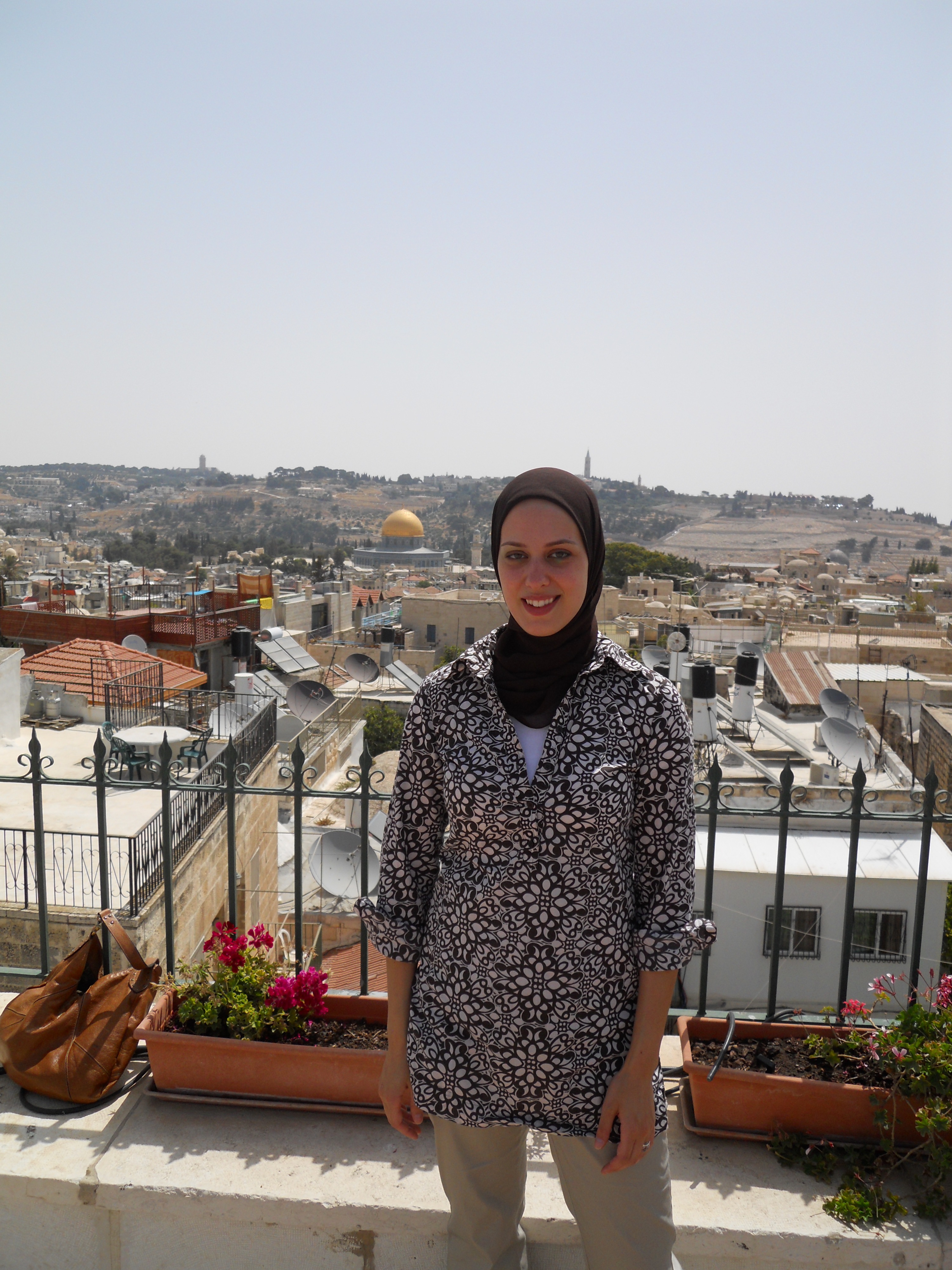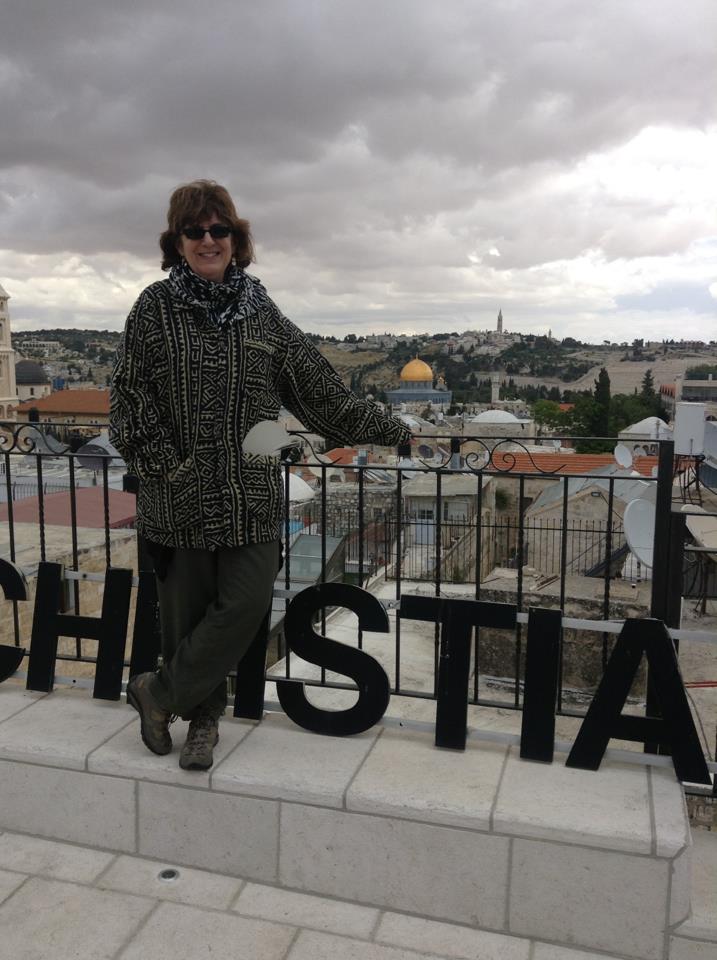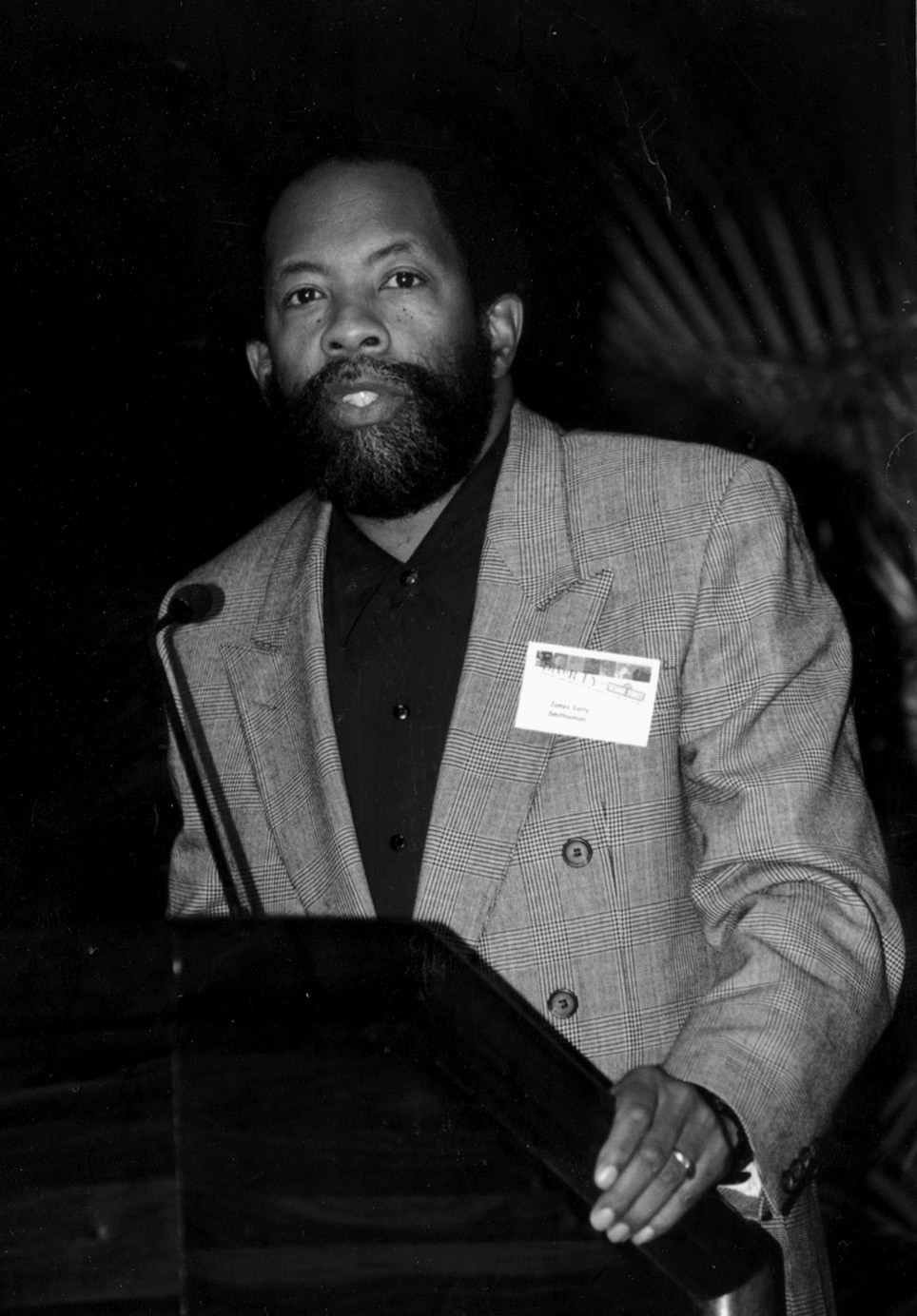Amy Horowitz, PhD
Amy Horowitz's career spans academic and public sectors. She was Program Director for A Global Assessment of the 1989 UNESCO Recommendation on the Safeguarding of Traditional Culture International Conference, co-hosted by the Smithsonian and UNESCO in 1998. She served as Assistant and Acting Director for Smithsonian Folkways Recordings where she received a Grammy as co-producer for the reissue of the Anthology of American Folk Music and supervised over eighty projects on locally situated global music. She was curator/researcher for the Smithsonian Folklife Festival’s Czech Republic, Music of Struggle, and Sacred Sounds and Jerusalem. Sweet Honey in the Rock credits her as central to their global reach.At The Ohio State University’s Mershon Center for International Security Studies, Horowitz was Principal Investigator of Protest Music as Responsible Citizenship: A Conversation with Harry Belafonte, Pete Seeger, Bernice Johnson Reagon and Holly Near, The Salaam Shalom Peace Project comprised of 5th grade students from local Muslim, Christian and Jewish Day Schools, and Living Jerusalem. She directed two symposia initiated by the Executive Dean of the College of Humanities: Negotiating Cultural Identities, Global Media, and International Security and Home and Away: Redefining Security under the Impact of Global Media.
Horowitz teaches courses on Human Rights and Social Movements, Music in Disputed Territories: The Cultural Implications of Globalization, and Living Jerusalem: Ethnography and Blog Bridging in Disputed Territory through the International Studies Program at Indiana University and Ohio State. She is interested in how global conflicts can be understood in local cultural terms. Her book, Mediterranean Israeli Music: The Politics of the Aesthetic won honorable mention in the Jordan Schnizter book award at the Association for Jewish Studies in 2010.
Distinctions:
- Excellence in Teaching Award, International Studies Program, Indiana University, 2011
- Jordan Schnitzer Book Award, Honorable Mention for Mediterranean Israeli Music and the Politics of the Aesthetic, Association for Jewish Studies, 2010
- Grammy Award, Anthology of American Folk Music, (Smithsonian Folkways Recordings), Co-Producer, 1997
- International President, B’nai Brith Girls, 1970
Wesley K Thomas, PhD
Dr. Thomas is an enrolled member of the Navajo Nation and resides in the community of Mariano Lake on the New Mexico side of the Navajo Nation. Currently, he is Professor, Graduate Dean of the School of Graduate Studies & Research, and Interim Provost at Navajo Technical University in Crownpoint, NM. During academic year 2011-16, he served as the Department Chair of the Center for Diné Studies at Diné College, Tsaile, AZ. At the same time, he was a Fellow in the Educational Policy Program with Teacher’s College at Columbia University. He served as the Academic Dean at Diné College, Tsaile, AZ from 2006-09. He returned to the Navajo Nation in mid-2006, from Indiana University-Bloomington, where he taught for several years as graduate faculty in the Departments of Anthropology, Gender Studies and International Studies. He also is the Founding Director of Indiana University’s First Nations Educational and Cultural Center. During 1990 to 1999, he was an undergraduate and graduate student (BA 1994, MA 1996 and PhD 1999) at University of Washington-Seattle. In 1976, he received his Associate of Arts degree from Navajo Community College at Tsaile, AZ. His academic research work focuses on construction of cultural identities, gender studies, Indigenous research methodologies, America’s cultural imperialism and acculturation/assimilation theories, among others. In recent years, he began focusing on cultural practices of Diné elders’ way of life and care and Diné family structure.Hilary E. Kahn, PhD
Hilary E. Kahn, Director for the Center for the Study of Global Change, has been at Indiana University since 1997. As Director, she oversees and initiates programs and projects involved in the deeper internationalization of Indiana University, leads the overall administration of the Center, and encourages innovative research and interdisciplinary scholarship in the field of Global Studies. She is also the Director of the Ph.D. Minor in Global Studies and leads the Framing the Global Project (with IU Press) and the Voices and Visions: Islam and Muslims from a Global Perspective Project. Hilary is an adjunct professor of anthropology at IUB and IUPUI and has taught numerous courses on topics such as issues and approaches to global studies, anthropological theory, ethnographic methods, visual anthropology, intercultural communication, the anthropology of religion, human rights and the arts, and indigenous cultures of Central America and Mexico. By using videoconferencing technology to link with classrooms overseas, she has taught students in Macedonia, Indonesia, and Russia. She also directs an international service learning program in Bluefields, Jamaica. Her areas of interest and expertise include international education, global teaching and learning, visual anthropology, indigenous image-making, identity formation, visual pedagogies, and transnational research. She has presented at national and international conferences, published numerous peer review articles and book and film reviews, and has a book "Seeing and Being Seen: The Q'eqchi' Maya of Guatemala and Beyond" (University of Texas Press, 2006) about her ethnographic research. In 2009, she received the IU Commission of Multicultural Understanding Faculty Award for promoting multicultural understanding in the classroom, on campus, and in the broader community and the International Studies Faculty Award in recognition for excellence in teaching.Feisal Amin Rasoul Istrabadi, SJD
Ambassador Istrabadi focuses his research on the processes of building legal and political institutions in countries in transition from dictatorship to democracy. He brings a mulit-disciplinary approach to studying the emergence of constitutionalism in such societies, including questions of timing and legitimacy, issues of transitional justice, and the political and cultural factors which influence the process of democratization. Ambassador Istrabadi lectures often at universities and think tanks on Iraq-related issues. He appears frequently in national and international media. Prior to his diplomatic appointment, Ambassador Istrabadi served as a legal advisor to the Iraqi Minister for Foreign Affairs during the negotiations for U.N. Security Council resolution 1546 of June 8, 2004, which recognized the reassertion by Iraq of its sovereignty. He was also principal legal drafter of Iraq's interim constitution, the Law of Administration of the State of Iraq for the Transitional Period, and principal author of its Bill of Fundamental Rights. Before contributing to the reconstruction of Iraq, Mr. Istrabadi was a practicing trial lawyer in the United States for 15 years, with approximately 70 civil trials in federal and state courts, focusing on civil rights, employment discrimination, and constitutional torts. He also served a Senior Legal Fellow for Legal Reform and Development in the Arab World at the International Human Rights Law Institute at DePaul University's College of Law in ChicagoSelected publications:
| 2011 | Islam and the State in Iraq: The Post-2003 Constitutions, in: Rainer Grote and Tilmann Röder (eds.), Constitutionalism in Islamic Countries: Between Upheaval and Continuity (Oxford University Press, October 2011) |
| 2009 | A Constitution without Constitutionalism: Reflections on Iraq’s Failed Constitutional Processes, 87 Texas L. Review. 1627 (2009) |
| 2007 | Rebuilding a Nation. Myths, Realities, and Solutions in Iraq, in: Harvard International Review (July 8, 2007) |
James Counts Early
James Early, Cultural Heritage-Democracy Consultant is the former Director of Cultural Heritage Policy Smithsonian Institution Center for Folklife and Heritage. Since 1984, Mr. Early served in various positions at the Smithsonian Institution, including Assistant Provost for Educational and Cultural Programs, Assistant Secretary for Education and Public Service, Deputy Assistant Secretary for Public Service, and Executive Assistant to the Assistant Secretary for Public Service. Prior to his work with the Smithsonian, Mr. Early was a humanist administrator at the National Endowment for the Humanities, Washington, D.C., a producer, writer, and host of "Ten Minutes Left," a weekly radio segment of cultural, educational and political interviews and commentary at WHUR FM radio at Howard University, and a research associate for programs and documentation. As a long-time advocate and supporter of cultural diversity and equity issues in the nation’s public cultural and educational institutions, Mr. Early began these pursuits at Morehouse College in Atlanta, GA, in 1969, where he received a Bachelor of Arts in Spanish. In 1971, Early entered the Graduate Studies program at Howard University on a Ford Foundation Fellowship to pursue a Ph.D. in Latin American and Caribbean History and a minor in African and Afro-American History. Over the course of a 25-year professional career, Mr. Early has consistently recognized the integrity of historically evolved values and cultures of African-American, Latino, Native-American, and Asian-Pacific American communities. He has taught high school Spanish, worked with the incarcerated, taught at the college level, lectured in the U.S. and internationally, and written extensively on the politics of culture.
Alba de Leon, PhD
Born in San Antonio, Texas, of immigrant Mexican parents, De Leon lives in her childhood neighborhood. As a young child, De Leon enrolled in a subscription to the American Geographical Society Around the World Program and began her study and interest in other people, cultures and places. De Leon earned a BA in Art at Bennington College, Vermont after completing her first year at San Antonio Community College. While at Bennington her education was supported with need-based aid and merit awards including the Ella Woodner Macey Award. After graduation, De Leon attended the University of Alabama in Tuscaloosa and earned an MFA degree before returning to San Antonio. Since 1992, De Leon has worked at Palo Alto College, one of the Alamo Colleges, and currently serves as Professor of Art and International Education Liaison. De Leon holds a Masters degree in Art History and a PhD degree in International Education and Entrepreneurship from the University of the Incarnate Word. Since 1998, in addition to teaching in the Arts, she collaborates with colleagues and administrators to internationalize the college campus and community. Furthermore, De Leon maintains a personal studio space in San Antonio, while the summers are spent with artists in Vermont. Alba's passion for making art, a love for life-long learning and travel includes brief and extended visits to Mexico, Morocco, Brazil, Spain, England and Italy. While travels and studies inform her work, it is her intuitive touch that commands her style of abstract art.






No comments:
Post a Comment